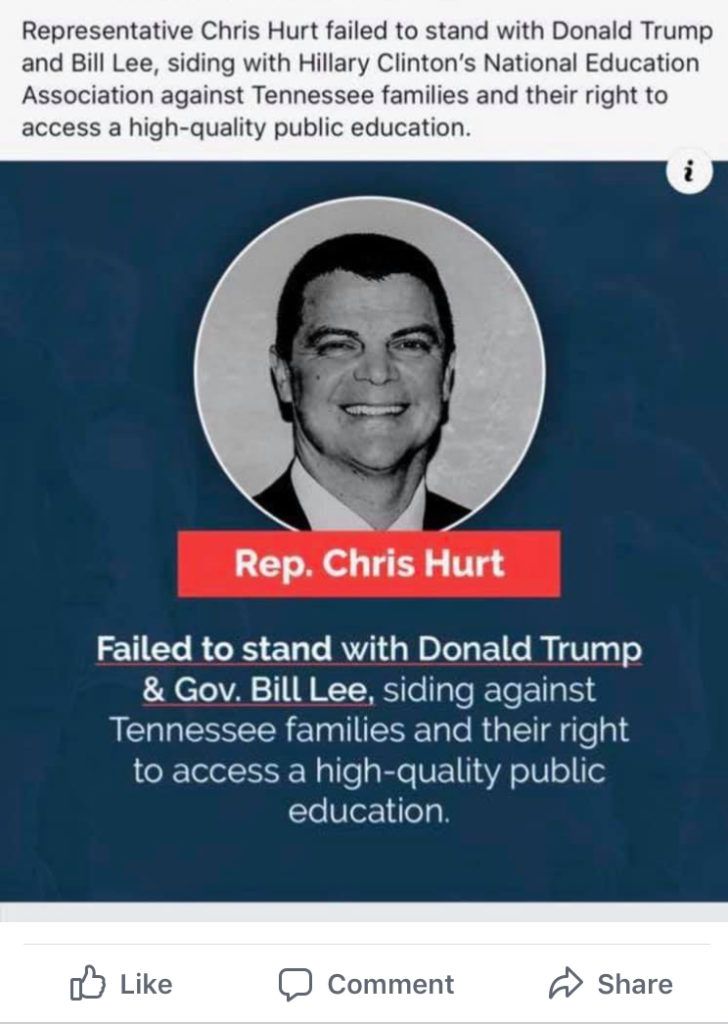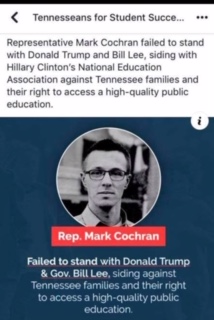Nashville school board member Amy Frogge takes on the notion of “school choice.” Here’s what she has to say:
Let’s consider for a moment the notion of “school choice.” This phrase is a political term that has been used to promote school privatization (through vouchers and charter schools). We hear the phrase frequently these days because it is spread by political PR machines to pave the way for money-making schemes through public education. This seemingly innocuous term appeals to many parents and citizens who are unaware of education policy debates and just believe that this term means allowing parents to choose great schools for their children. Of course, no one is opposed to giving parents options, but that’s not what “school choice” really means in the context of education discussions now.
As education historian Diane Ravitch documents in her most recent book, “School choice, it should be remembered, was the goal of Southern governors in the decade after the U.S. Supreme Court’s Brown v. Board of Education of Topeka decision of 1954. For many years, the term ‘school choice’ was stigmatized because most people, familiar with the backlash to the Brown decision, understood that ‘choice’ was a strategy devised by Southern governors to preserve racial segregation. The racist origins of school choice are well documented.”
Because the history of this phrase is largely forgotten, the use of this term from disparate groups makes for some strange bedfellows in the political world. On one hand, there are there are those who support “choice” from the perspective of need. These folks, primarily people of color, live in marginalized communities that have suffered decades of disinvestment. Their schools, which are segregated, underfunded, and often overcrowded, serve the neediest children without adequate support to meet the needs of those children who have experienced trauma and difficult life circumstances. When these families exercise “choice,” they are contributing to greater equity in the school system, and I am sympathetic to their circumstances. Charter schools appeal to these families, who see charters as a way to escape their neglected neighborhood schools.
On the other hand, “school choice” is also promoted by more affluent, white parents who would prefer more segregated public schools. This agenda is being driven by billionaire white men, who like to utilize (paid) people of color as the face of their movement. The white parents supporting the segregation agenda sometimes openly push to keep black children out of classrooms with their own children. In a bizarre twist, these white parents often end up advocating for “choice” alongside disenfranchised African-American parents who have suffered discrimination.
Ultimately, the real “school choice” debate should come down to equity, or in other words, ensuring that every child gets a fair shot at a great education. When children are bussed off to schools outside their zones or when families select schools across the city, the underlying question is whether those “choices” increase or decrease equity in the school district overall. I have long advocated for families on the west side to try their zoned schools, because this increases equity and also because our schools are very good, despite the bad rap they sometimes receive. I have long opposed charter schools because they decrease funding for schools serving the neediest students, because they increase school segregation, and because they are unregulated, which leads to fraud and misuse of taxpayer dollars. These, again, are equity issues.
But here’s the underlying problem: MNPS has not undertaken the work necessary to create effective pathways for ALL children to be well served. Opening the door wide to random “choice” may provide good options for some families, but leaves many more- almost always children in poverty- behind. I am hopeful that we will finally begin this work with Dr. Battle, who, having grown up in Nashville, truly understands the disparate needs of different areas of the city. The school system and the city, not parents, should be held responsible for ensuring greater equity across our district, and we should invite parents to help us in our work. The feeding frenzy we have created around the MNPS lottery system and certain schools only serves to decrease equity. The ideal is to have well-resourced schools in every neighborhood that are well supported by parents and their communities.
In the end, it’s really about the common good. “What the best and wisest parent wants for his child, that we must want for all the children of the community. Anything less is unlovely, and left unchecked, destroys our democracy.” (John Dewey) We must welcome all children regardless of their circumstances, provide greater resources for schools serving children with the greatest needs, encourage parent involvement, ensure that all of our schools are safe learning environments, and build community through our neighborhood schools, no matter where they are located. That’s the real secret for success.

For more on education politics and policy in Tennessee, follow @TNEdReport
Your support — $5 or more today — makes publishing education news possible.










